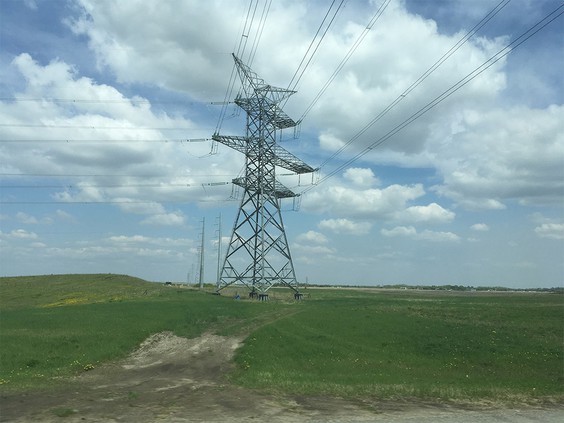Orlando utility shelves coal-gasification plant
By Knight Ridder Tribune
Substation Relay Protection Training
Our customized live online or in‑person group training can be delivered to your staff at your location.

- Live Online
- 12 hours Instructor-led
- Group Training Available
OUC and its partner, Southern Co., said the decision was driven by the growing likelihood of a tax or penalty for carbon pollution, which comes from burning coal and other fossil fuels.
Carbon is widely blamed by scientists as a major cause of global warming. "Everybody knows the environment for carbon regulation is becoming intense," said Jan Aspuru, OUC's vice president of power resources. "The political climate has changed dramatically."
OUC's $550 million project is the sixth coal plant in Florida to be shelved during the past year, as the specter of tougher pollution standards looms over the power industry.
The highly touted Orlando project got off the ground with a pledge by the U.S. Department of Energy to back it with $293 million in long-term loans. Plans had progressed so far that local, state and federal officials held a groundbreaking ceremony for the 300-megawatt plant in east Orange County in September.
In a process called coal gasification, the new plant would have chemically extracted burnable gases from relatively cheap and plentiful Wyoming coal. Those gases would then have been burned in a high-efficiency electricity generator. The technology was praised by OUC and Southern Co. as a way to rely on coal while vastly reducing pollution that contributes to smog, acid rain and mercury contamination.
But gasification was not expected to dramatically reduce carbon emissions, the suspected culprit in global warming. The hope was that the plant could help engineers find ways to capture and store carbon that would otherwise be pumped into the atmosphere.
Southern Co., which built and tested a pilot plant in Alabama, said the project would demonstrate the company's quest to make coal a cleaner fuel. With that in mind, even some environmentalists opposed to coal plants withheld opposition to the Orlando project.
"I'm sort of shocked they would use this project as a flagship to justify continued use of coal," said Stephen Smith, director of the Southern Alliance for Clean Energy. "And now they pull the plug on it."
This year has proved fatal to proposed coal plants in Florida, in part because Gov. Charlie Crist launched efforts to slash greenhouse gases generated by power plants and automobiles.
In July, Crist signed an executive order requiring utilities to cut emissions 40 percent by 2025, a level that would equal the amount generated in 1990. "We are in a cloud of regulatory confusion, and we don't know what the next step is," said Barry Moline, executive director of the Florida Municipal Electric Association. "There's no question utilities are concerned, and we need some direction."
OUC general manager Ken Ksionek said the utility will lose about $22 million in the decision to stop construction. However, that figure could have doubled if plans for the plant continued much further, he said.
OUC will try to make up for losses by purchasing from Southern Co. a 165-acre parcel near Orlando International Airport that the Atlanta-based utility had acquired several years ago. The tentative purchase price of $5 million is less than market value, Ksionek said, and the property could be used for another power plant. The coal-gasification plant would have opened in about three years.
OUC will continue with efforts to build its 300-megawatt generator with enough power for about 70,000 homes, but with natural gas as its fuel instead of gasified coal. Even without the new plant, the utility won't immediately face problems generating enough electricity, officials said.
OUC said it plans to ramp up efforts to get customers to conserve electricity by encouraging solar heating of water, better insulation of homes and other measures. But the decision to drop coal gasification already has led the utility to explore an option that brings another huge amount of controversy: nuclear power.
"If the world is going to move away from carbon, then nuclear will have an extremely important part," OUC's Aspuru said.











